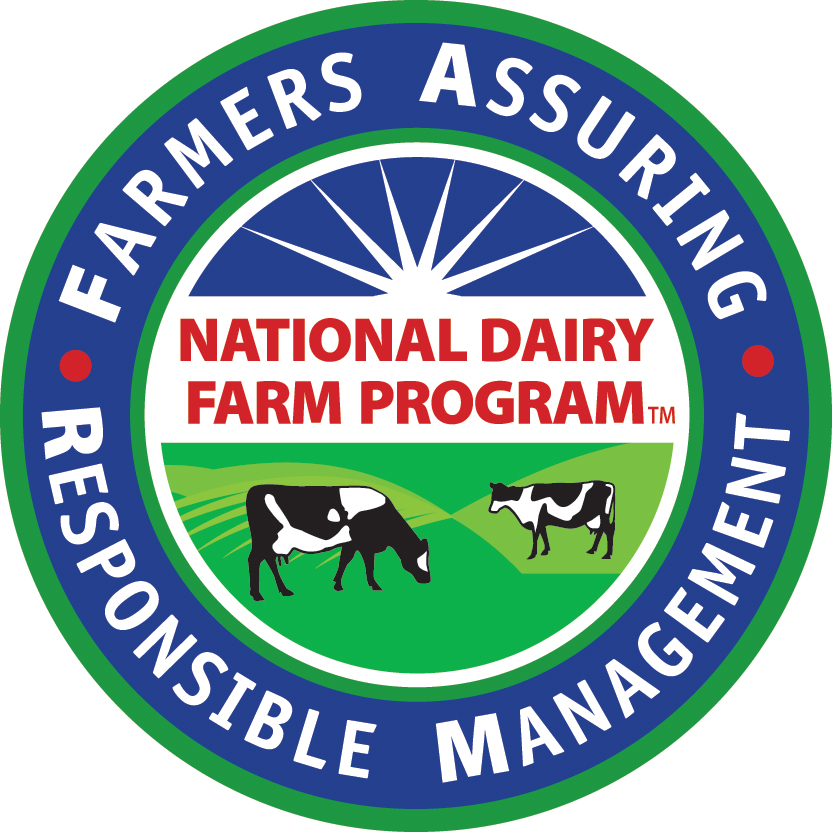 Nearly 50 Percent of Milk Supply Now Under FARM Umbrella
Nearly 50 Percent of Milk Supply Now Under FARM Umbrella
ARLINGTON, VA – Today’s consumers want to know that the food they purchase is safe, wholesome, nutritious, and produced with integrity. U.S. milk producers are demonstrating that commitment by enrolling at a rapid pace in the National Dairy FARM Program: Farmers Assuring Responsible Management (FARM). In fact, since enrollment began in September 2010, 45 percent of the nation’s milk supply now comes from farmers, cooperatives, and proprietary processors implementing the FARM program.
Voluntary and open to all producers, FARM is a national dairy animal care, third-party verified program designed to demonstrate dairy farmers’ commitment to outstanding animal care and a quality milk supply. Independent dairy producers, proprietary processors, and cooperatives are quickly coming on board.
“Telling this story is essential at a time when consumers want to know how their food is produced,” said John Miles, Land O’Lakes FARM implementation leader. “The FARM program helps us reach out to customers, consumers, and the entire marketing chain. It sends a strong message that Land O’Lakes member producers work hard caring for their animals and producing quality milk.”
FARM was created by the National Milk Producers Federation (NMPF), along with support from Dairy Management, Inc. FARM provides thorough animal care education for producers, on-farm evaluations, and objective third-party verification, giving customers and consumers the assurances they deserve.
“Dairy farmers are passionate about the care they provide to their animals and have an excellent track record of responsible management practices,” said Jamie Jonker, Vice President of Scientific and Regulatory Affairs at NMPF. “This program quantifies that passion and allows them to speak with one voice as they market nationally and internationally. The pace of participation has surpassed our expectations.”
Developed in partnership with producers, veterinarians, and animal care experts, FARM is a comprehensive program that incorporates the latest innovations in animal care from birth to marketing.
Participating producers are provided comprehensive training materials and undergo an on-farm evaluation conducted by a trained veterinarian, extension educator, co-op field staff member, or other FARM-trained professional. Evaluators then provide a status report and, if necessary, recommendations for improvement.
To protect the integrity and credibility of the program, a certain number of participating dairy farms will be randomly selected for objective third-party verification. Validus, an Iowa-based certified auditing company with more than 10 years of experience verifying on-farm animal care, has been selected to conduct all third-party evaluations and will begin that process this summer.
In addition to Land O’Lakes, participating cooperatives and proprietary producers include Agri-Mark, Inc., Hilmar Cheese Company, Foremost Farms USA, and Maryland and Virginia Milk Producers (MDVA) Cooperative.
“In today’s society we have to prove that animal care is important to all dairy farmers in a manner that our neighbors and customers can understand and respect. The best solution is FARM,” said Kevin Satterwhite, a dairy farmer and MDVA member from Newberry, S.C., who is an active participant in the FARM program.
A complete list of participants and all training materials in both English and Spanish can be found at www.nationaldairyfarm.com.
Dairy Management Inc., based in Rosemont, IL, is the domestic and international planning and management organization that builds demand for dairy products on behalf of America’s 60,000-plus dairy producers. DMI works with state and regional dairy promotion organizations to integrate marketing, promotion, advertising, public relations, nutrition education, and nutrition, product and technology research programs. www.dairycheckoff.com
The National Milk Producers Federation, based in Arlington, VA, develops and carries out policies that advance the well being of dairy producers and the cooperatives they own. The members of NMPF’s 31 cooperatives produce the majority of the U.S. milk supply, making NMPF the voice of more than 40,000 dairy producers on Capitol Hill and with government agencies.



 Nearly 50 Percent of Milk Supply Now Under FARM Umbrella
Nearly 50 Percent of Milk Supply Now Under FARM Umbrella Discussion Draft Paves Way for Further Congressional Consideration of Dairy Reforms
Discussion Draft Paves Way for Further Congressional Consideration of Dairy Reforms




